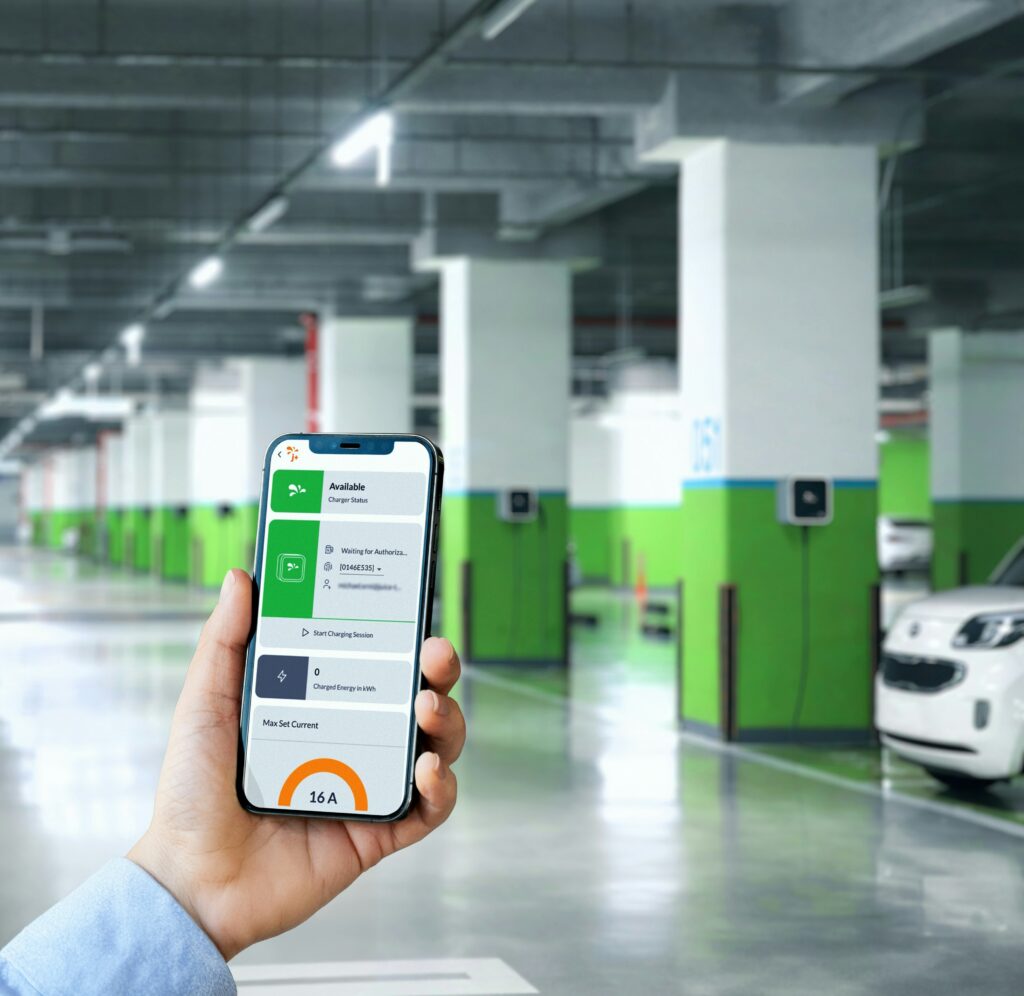Chargeprice is a tool for calculating the time and cost of recharging your electric vehicle at public charging stations, based on the recharging offers available.
Chargeprice will enable you to compare the different charging prices for a specific session and choose the one that suits you best, based on the different mobility operators.
Please note that Chargeprice is for information purposes only. We are in no way the managers of the charging stations, or in charge of the mobility operators’ tariffs. We provide you with all available public information to enable you to anticipate the cost of your recharge.
We accept no responsibility for any invoicing that differs from the advertised price, should the mobility operator make a billing error. However, we can assist you with the mobility operator via our “User feedback” option.

Congratulations! You’ve just purchased an electric car and are entering a new era of cleaner and more economical mobility.
To get the most out of your vehicle, here are a few essential tips.
1. Understanding autonomy and recharging
The range of your car depends on several factors: battery capacity, your driving style, and weather conditions. Learn to manage your range by adopting smooth driving and using regenerative braking.
As for charging, locate charging stations near your home and along your regular routes. If possible, install a home charging station to make daily use easier. Don’t forget to use apps like Chargeprice to compare charging prices and find the best options.
2. A wide range of prices for public pay stations
Charging rates at public charging stations vary considerably, depending on the mobility operator, the type of station and the billing method. You may come across different pricing structures:
The price difference between operators can be significant. Some charging stations charge just a few cents per kWh, while others, particularly high-powered ones on freeways, can be several times more expensive. Comparing prices before recharging is essential to optimize your costs and avoid unpleasant surprises.
3. Optimize your driving
To maximize fuel efficiency:
4. Intelligent recharge management
Recharge your vehicle at off-peak times to cut costs and limit the impact on the power grid. Some vehicles allow you to program charging to optimize energy use.
5. Plan your routes
For long journeys, plan your stops according to available charging points. Check that the charging stations are compatible with your car, and use charging cards adapted to your needs to benefit from the best rates.
6. Maintaining your electric car
Electric cars require less maintenance than combustion models, but it is essential to :
7. Enjoy the benefits of electric mobility
In addition to reducing your carbon footprint, your electric car offers other advantages: access to certain low-emission zones, savings on fuel, and sometimes financial assistance for the installation of a home charging station.
With these tips, you’re ready to take full advantage of your new electric car. Happy driving!
The electric vehicle charging market includes many acronyms. Chargeprice helps you understand them:
EV : Electric Vehicle (BEV, PHEV, motorcycle, etc.)
CPO : Charge Point Operator, responsible for operating a charging network
EMP : eMobility Service Provider, offering charging services across one or more networks
Interoperability: Ability of charging stations to be accessible through all mobility operators
Station : A location that includes one or more charging points
Charging station : A unit with multiple charging connectors
Connector: A single charging plug, e.g., Type 2, CCS, Chademo
Power: Charging capacity provided by a station, expressed in kW, typically ranging from 3 kW to 350 kW
Charging card: A physical or digital pass that activates charging at a station
Charging offer: A subscription plan from a mobility provider that gives access to charging services
Charging time : Duration needed to charge an EV battery to a specific percentage (e.g., up to 80% capacity)
Charging curve: The rate at which an EV battery charges, influenced by power supply and current battery level; generally decreases as charging progresses
Charging price : The cost EV owners pay to charge their vehicles at public or private stations
This price can vary depending on electricity rates, charging speed, location, network provider, and subscription plans. Pricing is usually calculated per kilowatt-hour (kWh), per session, or per minute. Some networks use flat rates, while others apply dynamic pricing models based on demand and energy availability.
Price components: May include kWh consumed, time spent (minutes), and session fees
Parking fees: Additional charges applied for occupying a charging spot after charging is completed
Chargeprice is a platform for comparing electric vehicle charging prices according to operators and available charging cards.
Discover our application
The application aggregates data from various suppliers and operators to display estimated costs according to billing type (kWh, minute, session).
Yes, Chargeprice covers over 30 countries and references over a million charge points.
No, the application can be used without registration, but an account gives access to advanced features such as saving favorites.
Yes, the application displays prices according to users’ subscriptions and packages.
Yes, Chargeprice encourages users to report errors to improve information accuracy.
Operators can submit their terminals via the platform for inclusion in the database.
Yes, Chargeprice is an independent platform that does not favour any specific operator.
Yes, The application is free, but offers a premium version with additional benefits.